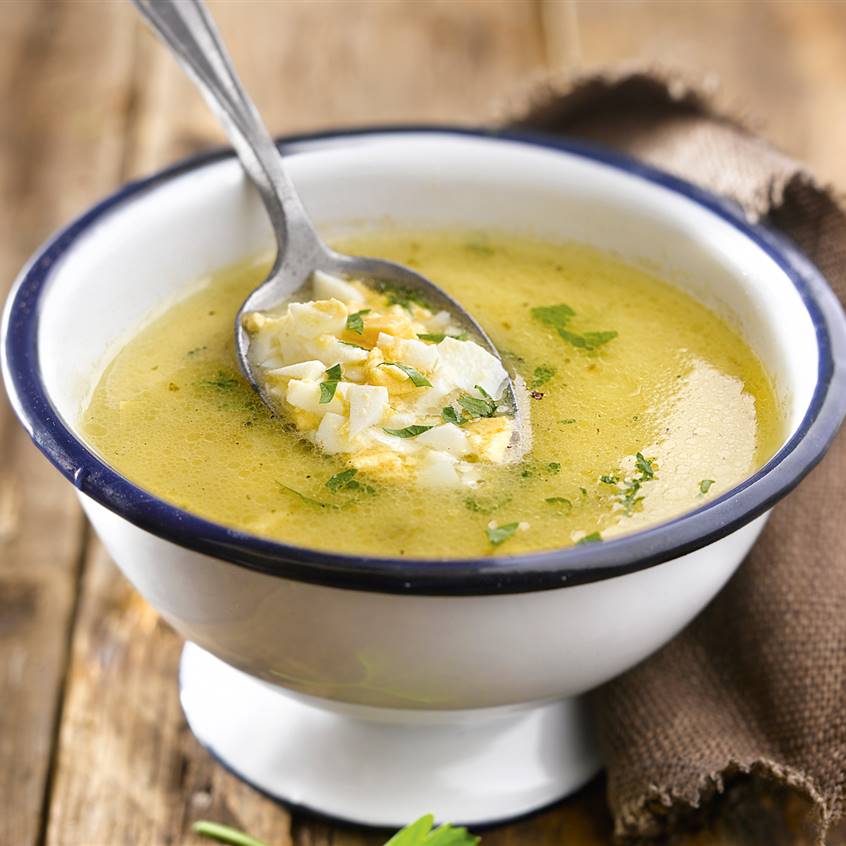The symptoms of irritable bowel syndrome can be reduced or eliminated with food strategies and natural products.

- Irritable bowel treatment
- Diet low in FODMAPS and gluten against intestinal inflammation
- Irritable bowel: convenient and inconvenient foods
- The most effective supplements for irritable bowel
The irritable colon or large intestine is a functional syndrome, that is, a pathology in which there is an alteration of intestinal functioning but there is no organic lesion.
- Symptoms of irritable bowel. Symptoms can be mild or severe. It is manifested by various digestive disorders. The most common are abdominal pain, gas, bloating, lack of appetite, diarrhea or constipation (or both).
(abdominal discomfort and distension, diarrhea or constipation, meteorism …) and expressing an inflammatory or allergic intestinal response. - Causes of irritable bowel They are not entirely known. It may be induced by regular intake of medications, such as antibiotics, laxatives or iron tablets. Or it may be due to intolerance to certain foods, such as dairy or gluten-rich foods. In addition, this intestinal reaction is usually associated with a situation of anxiety or emotional stress.
- Treatment of irritable bowel. Treatment of irritable bowel syndrome should focus on eliminating the inflammatory or allergic response that exists at the base of the process.
IRRITABLE BOWEL TREATMENT
Irritable bowel affects one in ten people in developed countries and this proportion increases among women and between 20 and 50 years.
Conventional treatment includes drugs to treat symptoms, such as anticholinergics, antidepressants, and antibiotics. There is no specific, curative drug therapy.
Dietary changes such as avoiding foods and drinks that stimulate the intestines (such as caffeine, tea, or cola), eating small portions, and increasing your intake of high-fiber foods are also recommended.
- In general, following a plant-based diet with little or no refined carbohydrate supports a healthy microbiome and regeneration of digestive tissues. A proper diet reduces intestinal inflammation and other symptoms such as fatigue or depression, as well as the risk of cardiovascular disease.
- Certain supplements may also help reduce symptoms.
DIET LOW IN FODMAPS AND GLUTEN AGAINST INTESTINAL INFLAMMATION
In addition, when symptoms flare up, specific diets can be tried, such as low FODMAPS (dietary sugars known as fermentable oligosaccharides, disaccharides, monosaccharides and polyols, which can exacerbate symptoms related to irritable bowel syndrome).
FODMAP-rich products feed certain digestive bacteria that generate byproducts that cause pain and bloating. Often, avoiding or reducing these foods helps control symptoms of inflammation, diarrhea, and constipation.
Abundant foods in FODMAPS are wheat, barley, rye, onion, leek, asparagus, garlic, artichoke, beets, fennel, peas, endives, legumes, dairy products, fruits, honey, mushrooms, cauliflower, sweets …
Many of the foods that are limited on the low-FODMAP diet are very healthy for most people. That is why it should be performed for a short period and under professional control, only when the symptoms are exacerbated, since there are no studies on its long-term beneficial effect.
A low or gluten-free diet can also help, even if you are not celiac, because gluten can act on the intestinal mucosa and alter its barrier function. It may be recommended especially in people affected with diarrhea.
The same can be said for dairy products. The dairy-free diet represents a relief in many cases.
IRRITABLE BOWEL: CONVENIENT AND INCONVENIENT FOODS
Treatment of irritable bowel syndrome should focus on eliminating the inflammatory or allergic response that exists at the base of the process.
For this, it is advisable to temporarily eliminate from the diet the consumption of animal milk and derivatives (such as yogurts, cheeses, etc.), minimize foods with abundant gluten (wheat, barley and rye), reduce the consumption of meats and sauces with fried, and moderate that of legumes.
In addition, it is advisable to drink plenty of fluids (between one and two liters daily, preferably outside meals), if possible, in the form of chamomile infusion (two tablespoons per liter of water), because it helps to reduce inflammation of the digestive mucosa.
Among the fruits, apples, pears, persimmons, quinces, papayas, dates, bananas, blueberries and avocados are especially recommended.
Soluble fiber such as apple pectin protects the intestinal mucosa.
The mucilage-rich fiber of algae also makes them recommended.
Although sometimes warnings or recommendations are made regarding the artichoke in case of irritable bowel, it does not have a special laxative effect.
It is a very healthy and recommended food, which exerts a proven protective effect on the liver, and you just have to avoid abusing it as it can produce an excess of gas.
Among cereals, oats, especially in the form of boiled flakes or porridge is very indicated in irritable bowel syndrome because of the mucilage it produces and its nutritional capacity.
Corn, preferably in the form of flour or flakes, is also a good food, in addition to being gluten-free. The same goes for rice.
Following these dietary guidelines, you will see that as intestinal inflammation is reduced and the digestive mucosa is normalized, more and more foods are also tolerated.
THE MOST EFFECTIVE SUPPLEMENTS FOR IRRITABLE BOWEL
PSYLLIUM
For people with irritable bowel syndrome and constipation as the predominant symptom, a soluble fiber supplement (for example, those containing psyllium) may be helpful. Soluble fiber, which should be taken with plenty of water, is also found in foods such as fava beans, avocados, oatmeal, and dried plums.
This supplement should be taken under medical supervision if you are following any treatment with drugs, as it may influence absorption. In general, it is enough to take the drug two hours before the fiber-rich supplement.
PROBIOTICS
A review of recent studies, involving 1,800 participating patients, showed that probiotics (viable bacteria supplements) effectively reduce pain and symptom severity in irritable bowel syndrome, especially in cases where diarrhea predominates.
However, given the variety of different probiotics that have been studied, it is difficult to know exactly which are the most useful or which is the most appropriate dosage.
However, according to the American Gastroenterological Association, the most commonly used probiotics are Bifidobacterium infantis, Saccharomyces boulardii and Lactobacillus plantarum.
For their part, doctors Mª Luisa Morales and Dr. Francisca Agustin recommend, for irritable bowel syndrome, the NFC01748, NFCM
and LC1 strains of Lactobacillus acidophilus, as well as Lactobacillus case, Lactobacillus plantarum and Bifidobacterium longum.
PEPPERMINT OIL
Peppermint oil possesses the property of relaxing the smooth muscles of the gastrointestinal system and may help reduce abdominal pain associated with irritable bowel syndrome.
To reduce the potential for heartburn, delayed-release coated capsules (usually containing 0.2 ml peppermint oil) are recommended. The dose for adults is one to two capsules up to three times per day.
Specific diets, supplements, and relaxation and meditation techniques are safe methods that can also be used in combination with medications, if these are necessary by prescription.






